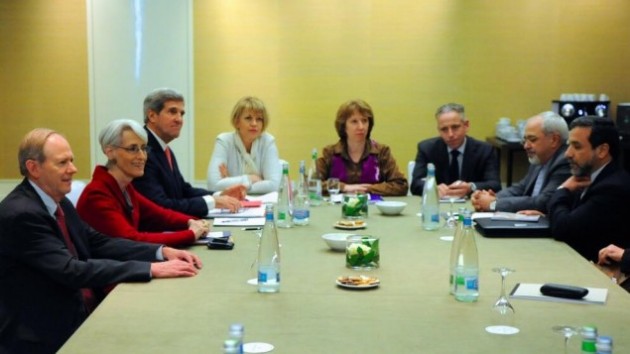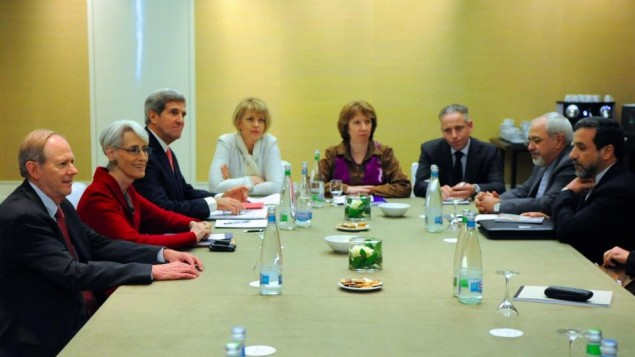

The Ayatollah-led regime and the six world powers have agreed on the terms for implementing the agreed upon Iran nuclear deal, the White House announced Sunday.
The agreement set to go into effect starting Jan. 20.
Under the terms of the six-month agreement, the regime will start to rein in its nuclear program, while the United States and other countries will ease off sanctions.
Iran agreed to limit its uranium enrichment to 5 percent, which is the level commonly used to power reactors. The Iran nuclear deal also commits the regime to ending the production of 20 percent enriched uranium, a level compatible and necessary for weapons-grade material.
They will also be required to supposedly neutralize their already existent 20 percent stockpile.
In exchange, the economic sanctions placed on the Iranian regime will be all but dismantled for a period of six months, during which time, the world powers of Britain, China, France, Germany, Russia and the United States would continue to negotiate the terms of a permanent Iran nuclear deal.
Many critics still say the current deal allows Iran to continue with its nuclear program, essentially allowing it to build a nuclear bomb. Iran claims its program is for peaceful purposes, such as medical research and power generation, which could benefit their economy and standard of life.
ISNA also reported Sunday that under the terms of the deal, Iran will guarantee that it won’t try to attain nuclear arms “under any circumstance.”
President Obama has a challenge ahead of him, as some of the most stanch critics of the Iran nuclear deal are Democrats in the House and Senate. Bipartisan legislation to reinstate Iranian sanctions is currently being written up in the Senate, which would force a veto showdown between the president and members of his own party.
The legislation is widely believed to have more than sufficient support to pass both houses of Congress.






